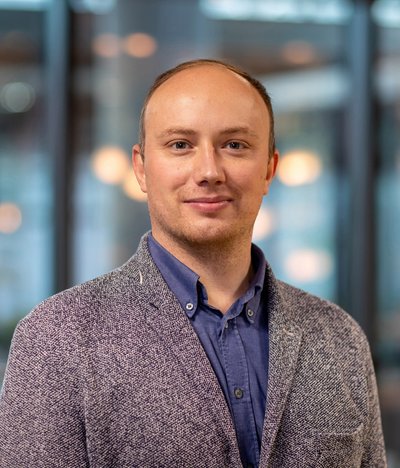Boris Karanov
Department / Institute

RESEARCH PROFILE
From October 2020, Boris is a post-doctoral research member of the Signal Processing Systems Group at the Eindhoven University of Technology with research focused on the application of deep learning for digital signal processing in optical fibre communications.
His research interests include nonlinear fiber effects, digital signal processing, and machine learning/deep learning in communications systems.
ACADEMIC BACKGROUND
Boris Karanov received the B.Sc. degree in telecommunication engineering from Technical University of Sofia, Sofia, Bulgaria, in 2014, and the joint M.Sc. degrees in photonic networks engineering from Aston University, Birmingham, U.K.; Osaka University, Osaka, Japan; and Technical University of Berlin, Berlin, Germany, in 2016, under the Erasmus Mundus Masters framework. His master thesis was developed in Fraunhofer Heinrich-Hertz-Institute, Germany. During the B.Sc. and M.Sc. programmes, he had internships in the Bulgarian Academy of Sciences and Mitsubishi Electric, Japan and worked under MC-IRSES scheme with Jiaotong University, Shanghai, China. His Ph.D. programme (2016-2020) was with the Optical Networks Group, University College London, London, U.K., and Nokia Bell Labs, Stuttgart, Germany under the European Industrial Doctorate (EID) Marie Skłodowska-Curie project Coding for Optical communications In the Nonlinear regime (COIN). His Ph.D. research focused on developing new coding and detection methods for communication over the nonlinear dispersive optical fibre channel using deep learning. In 2018, Boris was a recepient of the Nokia "Most innovative AI solution" award for pioneering work in the field of machine learning applications to communication systems. In 2021, he received the "Best paper award" from the IEEE/OSA Journal of Lightwave Technology, honouring the most influential, highest-cited paper published two to three years prior to the award. Also in 2021, he was awarded the Lombardi prize from the Electronic and Electrical Engineering department at UCL, given annually to the best, most impactful thesis submitted in the previous year.
Recent Publications
-
Luan Vinícius Fiorio,Boris Karanov,Johan David,Wim van Houtum,Frans Widdershoven,Ronald M. Aarts
Semi-Supervised Learning with Per-Class Adaptive Confidence Scores for Acoustic Environment Classification with Imbalanced Data
(2023) -
Vinícius Oliari,Boris Karanov,Sebastiaan Goossens,Gabriele Liga,Olga Vassilieva,Inwoong Kim,Paparao Palacharla,Chigo Okonkwo,Alex Alvarado
Hybrid Geometric and Probabilistic Shaping; Is It Really Necessary?
(2022) -
Boris Karanov,Polina Bayvel,Laurent Schmalen
Machine learning for short reach optical fiber systems
(2022) -
Vinícius Oliari,Boris Karanov,Sebastiaan Goossens,Gabriele Liga,Olga Vassilieva,Inwoong Kim,Paparao Palacharla,Chigo Okonkwo,Alex Alvarado
High-Cardinality Hybrid Shaping for 4D Modulation Formats in Optical Communications Optimized via End-to-End Learning
arXiv (2021) -
Boris Karanov,Laurent Schmalen,Alex Alvarado
Distance-Agnostic Auto-Encoders for Short Reach Fiber Communications
(2021)
Ancillary Activities
No ancillary activities